第21章 ON THE LORD BACON(2)
Would not one suppose that these sublime discoveries had been made by the greatest philosophers,and in ages much more enlightened than the present?But it was far otherwise;all these great changes happened in the most stupid and barbarous times.Chance only gave birth to most of those inventions;and it is very probable that what is called chance contributed very much to the discovery of America;at least,it has been always thought that Christopher Columbus undertook his voyage merely on the relation of a captain of a ship which a storm had driven as far westward as the Caribbean Islands.
Be this as it will,men had sailed round the world,and could destroy cities by an artificial thunder more dreadful than the real one;but,then,they were not acquainted with the circulation of the blood,the weight of the air,the laws of motion,light,the number of our planets,&c.And a man who maintained a thesis on Aristotle's "Categories,"on the universals a parte rei,or such-like nonsense,was looked upon as a prodigy.
The most astonishing,the most useful inventions,are not those which reflect the greatest honour on the human mind.It is to a mechanical instinct,which is found in many men,and not to true philosophy,that most arts owe their origin.
The discovery of fire,the art of making bread,of melting and preparing metals,of building houses,and the invention of the shuttle,are infinitely more beneficial to mankind than printing or the sea-compass:and yet these arts were invented by uncultivated,savage men.
What a prodigious use the Greeks and Romans made afterwards of mechanics!Nevertheless,they believed that there were crystal heavens,that the stars were small lamps which sometimes fell into the sea,and one of their greatest philosophers,after long researches,found that the stars were so many flints which had been detached from the earth.
In a word,no one before the Lord Bacon was acquainted with experimental philosophy,nor with the several physical experiments which have been made since his time.Scarce one of them but is hinted at in his work,and he himself had made several.He made a kind of pneumatic engine,by which he guessed the elasticity of the air.He approached,on all sides as it were,to the discovery of its weight,and had very near attained it,but some time after Torricelli seized upon this truth.In a little time experimental philosophy began to be cultivated on a sudden in most parts of Europe.It was a hidden treasure which the Lord Bacon had some notion of,and which all the philosophers,encouraged by his promises,endeavoured to dig up.
But that which surprised me most was to read in his work,in express terms,the new attraction,the invention of which is ascribed to Sir Isaac Newton.
We must search,says Lord Bacon,whether there may not be a kind of magnetic power which operates between the earth and heavy bodies,between the moon and the ocean,between the planets,&c.In another place he says either heavy bodies must be carried towards the centre of the earth,or must be reciprocally attracted by it;and in the latter case it is evident that the nearer bodies,in their falling,draw towards the earth,the stronger they will attract one another.
We must,says he,make an experiment to see whether the same clock will go faster on the top of a mountain or at the bottom of a mine;whether the strength of the weights decreases on the mountain and increases in the mine.It is probable that the earth has a true attractive power.
This forerunner in philosophy was also an elegant writer,an historian,and a wit.
His moral essays are greatly esteemed,but they were drawn up in the view of instructing rather than of pleasing;and,as they are not a satire upon mankind,like Rochefoucauld's "Maxims,"nor written upon a sceptical plan,like Montaigne's "Essays,"they are not so much read as those two ingenious authors.
His History of Henry VII.was looked upon as a masterpiece,but how is it possible that some persons can presume to compare so little a work with the history of our illustrious Thuanus?
Speaking about the famous impostor Perkin,son to a converted Jew,who assumed boldly the name and title of Richard IV.,King of England,at the instigation of the Duchess of Burgundy,and who disputed the crown with Henry VII.,the Lord Bacon writes as follows:-"At this time the King began again to be haunted with sprites,by the magic and curious arts of the Lady Margaret,who raised up the ghost of Richard,Duke of York,second son to King Edward IV.,to walk and vex the King.
"After such time as she (Margaret of Burgundy)thought he (Perkin Warbeck)was perfect in his lesson,she began to cast with herself from what coast this blazing star should first appear,and at what time it must be upon the horizon of Ireland;for there had the like meteor strong influence before."Methinks our sagacious Thuanus does not give in to such fustian,which formerly was looked upon as sublime,but in this age is justly called nonsense.